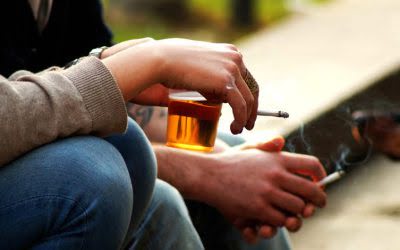Спасибо за письмо
You can help by offering non-judgmental support during recovery and after addiction treatment, whether that’s a ride to treatment or lending an ear when they need to talk. The action stage can often be the most stressful part of addiction recovery. Preparation is over, and real change begins to happen, whether that’s through entering a rehab program or quitting on their own. Thanks to AA and other substance recovery programs, you’ve probably at least heard of the Twelve Steps even if you aren’t quite sure https://www.cool-ticket.info/CubaGuide/cooked-photos how they work. Prochaska and Diclemente’s stages of change model proposed that there are 5 phases experienced in the cycle of addiction.
Many definitions of recovery include not only the return to personal health but participation in the roles and responsibilities of society. Maintenance can also become difficult when the stress of life catches up with you and the old, familiar ways of coping—the addictive behavior—re-surface. This is why it is important to learn new ways of coping with stress during the action stage so that alternative strategies will be available to you during the maintenance stage. The maintenance stage of the transtheoretical model of change is concerned with continuing to achieve the progress that began in the action stage.
Therefore, it is important to approach addiction recovery with patience, understanding, and a comprehensive treatment plan. The success of the action phase is crucial to the maintenance phase. The action stage of change substance abuse should not be rushed, rather is tailored to the specific needs of the individual in question. Ideally, friends and family members show invested support and encouragement during the action process model of addiction. Another one of the most important ways to support recovery is to understand that multiple relapses over a number of years are typically part of the process.

With substance addictions, thorough and thought-out preparation can be important to success. The “stages of change” or “transtheoretical” model is a way of describing the process by which people overcome addiction. The stages of change can be applied to a range of other behaviors that people want to change, but have difficulty doing so, but it is most well-recognized for its success in treating people with addictions. It’s important to note that the duration and effectiveness of addiction treatment may vary for each individual. Factors such as the severity of addiction, co-occurring https://barmintea.ru/bs/zvezdy-narkomany-biografii-i-interesnye-fakty-rossiiskie-zvezdy/ mental health conditions, and the level of support available can influence the length of treatment and the potential for relapse. Addiction recovery is a multi-faceted process that requires time, effort, and support.

Oftentimes, the user is so caught up in their addiction that they actually believe these false statements. The addict will generally deny that their patterns of use are concerning or should even be a https://www.gew3.org/Recovery/qumo-restoration-of-memory-map topic of conversation. At this stage, they will deny that their usage is a problem and that they ultimately have control over their habits. Get the latest announcements on SAMHSA’s effort to address recovery support.


Next is contemplation, recognizing there’s a problem and thinking of changing. Maintenance is about keeping up with sobriety and avoiding old habits. This stage underscores that recovery is an ongoing journey, where resilience and continuous support are key to long-term success. Contemplation stage, individuals begin to recognize the negative impacts of their substance use.
Спасибо за письмо
Спасибо за подписку